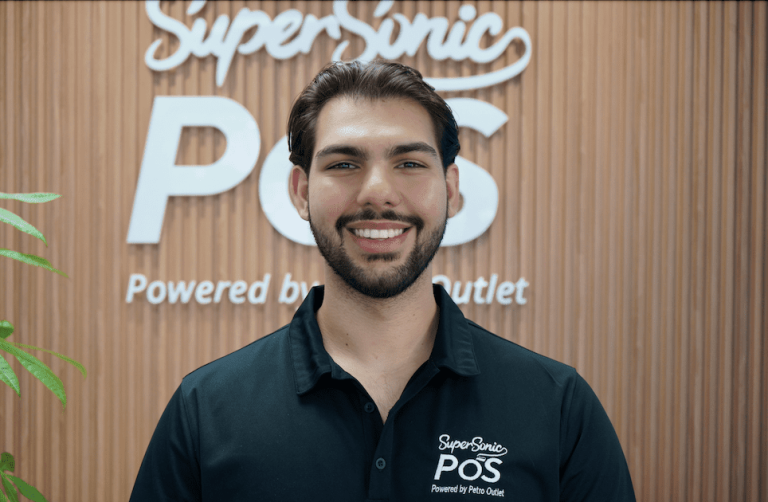Mahdi Hussein is the co-founder and chief architect of SuperSonic POS, a Tampa Bay-based retail technology company born from his family’s decades of operating independent gas stations and convenience stores. After watching frontline staff wrestle with clunky, siloed systems, he set out to design a single, cloud-native platform that streamlines payments, inventory, and compliance for owners who don’t have an IT department on call. Hussein holds a degree in Computer Sciences from the University of Florida, where he focused on distributed systems and user-centric design. He combines that technical expertise with hands-on retail insight to build tools that stay nimble as regulations, payment methods, and customer expectations evolve. When he isn’t optimizing code, he mentors local student entrepreneurs and advocates for accessible technology that keeps small businesses competitive in an increasingly data-driven marketplace.
In 2019, a 20-year-old programmer and his father looked at the outdated point-of-sale (POS) terminals in their Tampa Bay convenience store chain and decided the market deserved better. Six years later, that programmer, Mahdi Hussein, now 26, leads SuperSonic POS — an all-in-one, cloud-native platform that powers thousands of independent retailers across the US and Canada.
Mahdi’s rise from family cashier to teaching CEO reads like a crash course in grit, code, and customer empathy.
Roost in the aisles
Mahdi grew up restocking shelves and balancing registers in stores his immigrant father, Mohammad Hussein, had run for decades. He loved tech more than tally sheets, so he taught himself C++ on a FIRST Robotics team and later architected enterprise apps as VP of Engineering at a software firm while still in school. But every holiday break, he came home to the same pain points — price changes that took days, theft that went undetected, and hardware that crashed the second the network hiccuped.
Mahdi’s earliest “user-testing lab” was the back room of a 24-hour gas station off US-1. By 12, he was reconciling cash drops; by 15, he was hacking together macros that shaved minutes off nightly closeouts.
Watching employees juggle handwritten shrink logs and balky scanners gave Mahdi twin superpowers: empathy for frontline staff and an intolerance for friction. He often says the best software specs he ever wrote came from sweeping aisles at 2:00 AM, mentally mapping how each click at the register rippled through inventory, payroll, and a family’s margin of error.
Mahdi’s frustration became the spark. “I thought, why not build a system that thinks like an owner?” he says.
Bootstrapped on $500 a month
With no outside capital, the father-son duo launched SuperSonic POS from a spare bedroom, keeping burn under $500 a month and answering 1:00 AM support calls themselves. Mahdi calls that stretch, “the best product-research lab money couldn’t buy.” Every bug report became a feature; every service call hardened the culture of 24/7, US-based support that still defines the brand.
Those shoestring years forced the team to weaponize constraints. Mahdi bartered code for refurbished hardware, ran servers on secondhand rigs, and lived on diner coffee while he rewrote core modules between support tickets. Because every dollar was withdrawn from the same checking account that paid rent, each feature was shipped only after it proved revenue-positive or cost-neutral.
That discipline hard-wired profitability into the culture. Even today, new initiatives launch with clear paths to break-even instead of slide-deck projections.
Tech that protects the underdog
Unlike legacy POS suites that charge for every add-on, SuperSonic POS bakes in real-time inventory, loss-prevention analytics, AI-driven product entry, and a camera-integrated audit trail. One early install caught a five-person cashier ring skimming hundreds of dollars a day — a moment Mahdi says “made it real.”
“We’re safeguarding livelihoods, not just syncing receipts,” Mahdi explains.
SuperSonic POS’s newest release features a predictive inventory engine that crowdsources sell-through trends across its merchant network, as well as a screen-embedded panic button that silently alerts authorities. The emphasis on safety and margin protection stems directly from Mahdi’s retail upbringing.
Leadership built on family dynamics
Working with his father is Mahdi’s “biggest blessing and toughest MBA class,” he says. Generational disagreements surface daily, but so does trust. He credits Mohammad for handing over the reins early and backing bold bets, like refusing long-term contracts and publishing transparent pricing online.
Conflict resolution at SuperSonic POS often starts over Turkish coffee and ends with a whiteboard full of cost-benefit analyses. Mahdi and Mohammad long ago set a rule: debate the idea, not the relationship. That approach allows Mahdi to experiment freely, while Mohammad offers a seasoned gut check on risk.
The intergenerational push-pull has also shaped their org chart; mentorship flows both ways, with older team members guiding sales strategy and younger engineers introducing bleeding-edge tech stacks. The result is a leadership style that feels less like a hierarchy and more like a relay race — each generation handing the baton forward without losing speed.
Paying it forward
Success funds an annual program that donates full systems — hardware, software, and lifetime support — to first-time entrepreneurs, many of whom are immigrants or refugees who remind Mahdi of his own family journey. “Tech shouldn’t be a gatekeeper to the American dream,” he says.
Last year, the program outfitted a Syrian refugee couple’s corner market in Jacksonville, which had been hemorrhaging $600 a month due to mispriced goods and silent shrinkage. Three weeks after installation, losses dropped by half, and the owners used the savings to hire a part-time cashier, allowing their kids to focus on school.
Stories like that, Mahdi says, remind the team why every efficiency feature matters. “When margins tighten, technology isn’t just a convenience,” he says. “It’s the difference between staying open and shutting the doors for good.”
Lessons for aspiring founders
Profit is a feature. SuperSonic POS hit cash-flow positive before hiring employee #2.
Service is the moat. Every late-night call Mahdi answered became a roadmap ticket.
Kill your darlings. Early features that didn’t scale were axed, even when they were Mahdi’s idea.
Show, don’t tell. When prospects doubted a twenty-something CEO, real-time demos closed the deal.
Family can be leverage — not baggage — if you set roles early and keep communication brutal and kind.
What’s next
Mahdi is scouting strategic partnerships to push SuperSonic POS data into lending, supply-chain optimization, and insurance risk models. “We started by wiring cash drawers; now we’re wiring entire business ecosystems,” he says.





